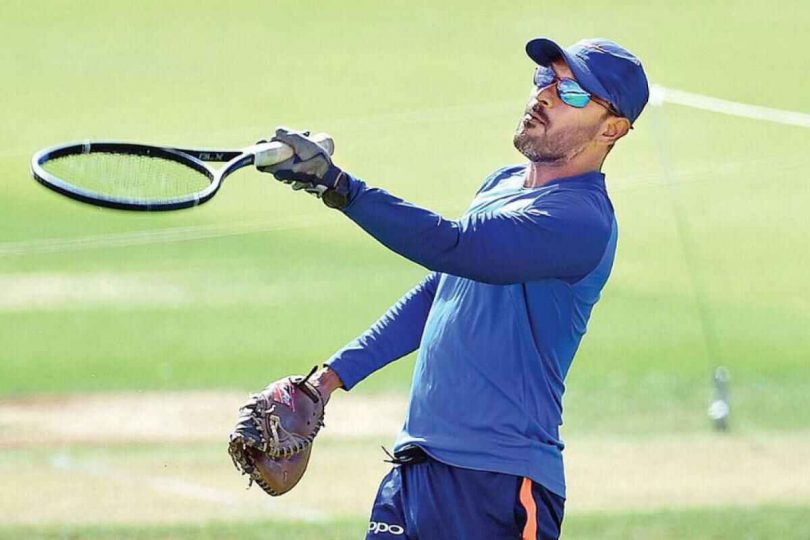India’s fielding hasn’t been particularly good in the ongoing series against New Zealand, coach R Sridhar said on Friday but refused to blame tight schedules for the “downward curve” despite conceding that hectic travelling is affecting the side’s practice plans.
Sridhar said India’s fielding has at best average in the last four months. He said fatigue could be a contributing factor to losses during this time period, including the one in the first ODI against New Zealand at Hamilton on Wednesday.
“…the West Indies series at home was somewhere we really dropped. We were average, to say the least. But definitely we have not lived to the standards as we did in the world Cup or even in the build-up to the World Cup in the last couple years,” said Sridhar on the eve of the second ODI here.
Sridhar said they have accounted for the downturn in fielding standard by a grading system privy to the support staff. He said the team management keeps a sharp eye on the workloads and practice schedules of all players.
“We keep reminding the players about attention to basic detail…In a T20 game, each fielder has to be his own captain. He need not wait for the captain to move him or the bowler to move him in a certain direction or to a certain position,” he said.
“We try and tell them to think ahead of the game, you as a fielder captain yourself, see which way the breeze is, which way the batsman’s tendencies to hit are, what’s the bowler’s plan and position accordingly.
“So we empower the fielders so that they can become their own captain and they can take decisions on their own because the captain has got too much on his plate at certain times. That’s what we speak about,” he added.
India’s fielding regime has been impacted by the constant travelling on this tour. There was only one full session before the T20 International series whereas the other three sessions have all been optional.
“That’s the nature of the current schedule, we have to take it. We have to play around it but we hardly had a session during the entire T20 schedule. There is not much we can put in in terms of technical work on the ground…,” he pointed out.
“Apart from that, we do have a look at the videos and see what led to an error. It need not always be a technical error every time there is a fumble or a dropped catch. We need to know whether it could be a tactical position error or the mind not being in the right place, so many things that can lead to it,” he explained.
“It is a tight schedule but it is not a complaint and it is not an excuse at all. We need to be better.”
Speaking about workload management, Sridhar said the current fitness levels of the players are so good that they are able to adapt pretty quickly
“We do monitor their workloads. We will be lying to ourselves if we say no, they are fresh as a daisy every time they go on to the park. They are not, because they are travelling and playing games,” he said.
“But the current fitness levels of this team is really good, so that in turn helps to recover from the workload and fatigue quickly and be fit on the park. But we do keep that in mind but I don’t blame fatigue for the down curve,” he added.
Talking about the poor moments in the first ODI, the coach said, “Overthrows, I mean, you are talking about Manish (Pandey) — he took a chance. He had to do it, and we needed a wicket at that time.
“You can bargain four runs for a wicket and it was the best player who was there at that time. These things happen, you can’t look too deep into that.”
But Sridhar minced no words in his criticism of Kuldeep Yadav’s dropped catch of centurion Ross Taylor.
“…that catch should have been taken. Probably it was after his first over, maybe he was thinking about his previous over, could be anything. It could not be a technical aspect at all.
“We are trying to get better but we were average. There is no doubt about that. We can get better,” he said.







